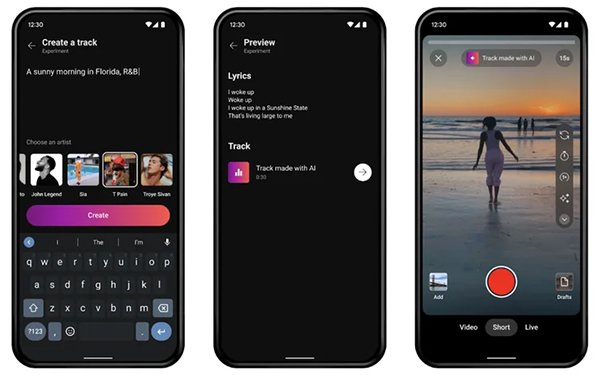
After its initial announcement back in 2023,
YouTube’s “Dream Tracks” AI-powered tool, which uses text prompts to create brief audio clips, is now available to creators in the U.S., marking a new step in the Google-owned social
company's plans to shape the AI music landscape.
Powered by Lyria, Google DeepMind’s advanced AI music generator, Dream Track is an experiment in YouTube Shorts designed to help deepen
connections between artists, creators, and fans through music creation.
In November 2023, YouTube teamed up with nine popular recording artists, including Charli XCX, John Legend, Sia, T-Pain,
and Charlie Puth, who allowed creators to select their voices from a list and create a prompt-generated audio clip to use in their Shorts, ultimately making royalty-free soundtracks up to 30 seconds
long.
advertisement
advertisement
Now, all U.S. creators can use Dream Track to accompany their short-form video clips on YouTube.
However, there are no vocals available yet, just custom instrumentals meant to
help creators fill in the atmosphere of their videos.
Users engaging with the creator's AI-generated soundtrack are also able to partake in creative possibilities by remixing the audio clip
included in the original post.
The company has not said whether or not its original experiment with recording artists' voices will be integrated into the next iteration of Dream Track,
offering both songwriters and creators a unique way to connect with their fans.
By partnering with Universal Music in August 2023, YouTube declared that it aims to help protect its community
of viewers, creators, artists, and songwriters as it continues to experiment and develop Dream Track, as well as other AI-powered music generation tools that use text prompts to turn vocal hums into
solos replicating a variety of instruments such as saxophone or drums.
YouTube says any content created with its music AI tools -- powered by Lyria -- will carry a SynthID watermark that is
hidden but preserved when a track is modified, making it possible to know that the sound bite is AI-generated.